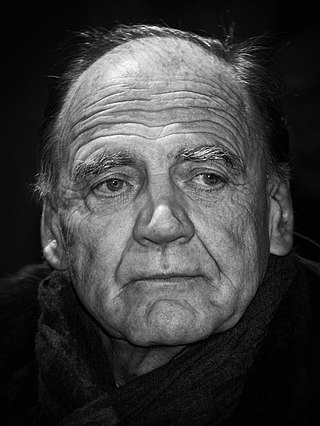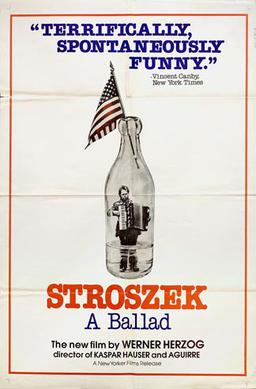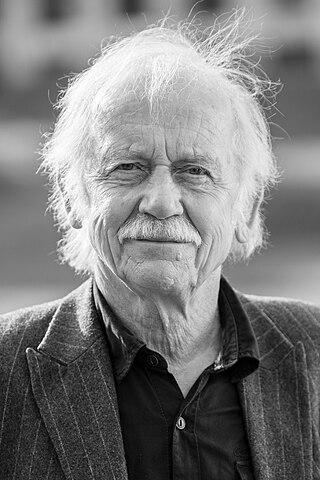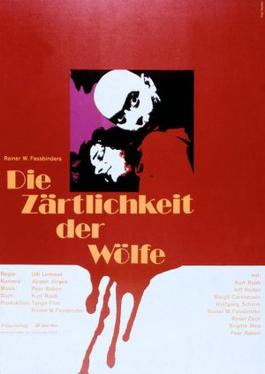
The Enigma of Kaspar Hauser is a 1974 West German drama film written and directed by Werner Herzog and starring Bruno Schleinstein and Walter Ladengast. The film closely follows the real story of foundling Kaspar Hauser, using the text of actual letters found with Hauser.

Emil Erich Kästner was a German writer, poet, screenwriter and satirist, known primarily for his humorous, socially astute poems and for children's books including Emil and the Detectives. He received the international Hans Christian Andersen Medal in 1960 for his autobiography Als ich ein kleiner Junge war. He was nominated for the Nobel Prize in Literature in six separate years.

Bruno Ganz was a Swiss actor whose career in German stage, television and film productions spanned nearly 60 years. He was known for his collaborations with the directors Werner Herzog, Éric Rohmer, Francis Ford Coppola, and Wim Wenders, earning widespread recognition with his roles as Jonathan Zimmerman in The American Friend (1977), Jonathan Harker in Nosferatu the Vampyre (1979) and Damiel the Angel in Wings of Desire (1987).

Reinhard Hauff is a German film director. His works, which were mostly carried out in the late 1960s to early 1990s, are known for their social and political commentary. Stammheim, which is based on the activities of the Red Army Faction won the Golden Bear award at the 36th Berlin International Film Festival in 1986. In 1987, he was a member of the jury at the 37th Berlin International Film Festival. His 1970 film Mathias Kneissl was entered into the 7th Moscow International Film Festival.

Stroszek is a 1977 German tragicomedy film directed by Werner Herzog and starring Bruno S., Eva Mattes, and Clemens Scheitz. Written specifically for Bruno S., the film was shot in Plainfield, Wisconsin, and North Carolina. Most of the lead roles are played by unexperienced actors.
Heimatfilme were films of a genre popular in Germany, Switzerland, and Austria from the late 1940s to the early 1960s. Heimat can be translated as "home", "hometown" or "homeland".

Peter Schneider is a German writer.

Tilo Prückner was a German television and film actor. His career spanned five decades and more than 100 films.

Germany in Autumn is a 1978 West German anthology film about the period of 1977 known as the German Autumn, which was dominated by incidents of terrorism. The film is composed of contributions from different filmmakers, including Rainer Werner Fassbinder, Alexander Kluge, Edgar Reitz, Bernhard Sinkel, Alf Brustellin, Hans Peter Cloos, Katja Rupé, Peter Schubert and Volker Schlöndorff. It was entered into the 28th Berlin International Film Festival, where it won a Special Recognition award.

The Tenderness of Wolves is a 1973 West German crime drama film directed by Ulli Lommel. The story is based on the crimes of German serial killer and cannibal Fritz Haarmann. It was written by Kurt Raab, who also stars in the film, and produced by Rainer Werner Fassbinder. It was entered into the 23rd Berlin International Film Festival.

Swann in Love is a 1984 Franco-German film directed by Volker Schlöndorff. It is based on Marcel Proust's seven-volume novel sequence In Search of Lost Time, specifically a self-contained section of the first volume, the title of which typically translates as Swann's Way (1913). It was nominated for 2 BAFTA Film Awards.

Circle of Deceit is an anti-war film directed by Volker Schlöndorff and internationally released in 1981. An international co-production, it was an adaptation of Nicolas Born's novel of the same name, which had appeared in 1979. The film follows a German journalist sent to Beirut to report on the Lebanese Civil War, which had begun in 1975.
René Tinner is a Swiss recording engineer and producer, who has produced over 200 studio records and numerous live performances.

The 4th Toronto International Film Festival (TIFF) took place in Toronto, Ontario, Canada between September 6 and September 15, 1979. Due to overcrowding in the prior year, the Gala presentations were moved from the 700-seat Towne Cinema to the 1,600-seat Elgin Theatre. The People's Choice Award was awarded to Best Boy by Ira Wohl, which later won Oscar for Best Documentary Feature.

Confess, Doctor Corda is a 1958 West German crime film directed by Josef von Báky and starring Hardy Krüger, Elisabeth Müller and Lucie Mannheim. It is considered to be a film noir, one of a number made in Germany during the decade. It was shot at the Spandau Studios. The film's sets were designed by the art directors Erich Kettelhut and Helmut Nentwig.

Volker Hauff is a German politician of the Social Democratic Party (SPD).

The Flying Classroom is a 1954 West German family comedy film directed by Kurt Hoffmann and starring Paul Dahlke, Heliane Bei and Paul Klinger. It is an adaptation of the 1933 novel The Flying Classroom by Erich Kästner.
Die Wildente is a 1976 German-Austrian feature film based on the play The Wild Duck by Henrik Ibsen. Bruno Ganz played the leading role under the direction of Hans W. Geißendörfer.














